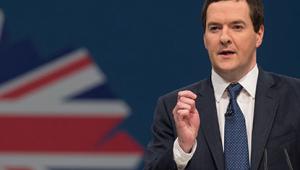Since the think-tank’s last forecast three months ago, little has changed in its central outlook for the UK economy except the NIESR now expects the chancellor to fall short of his fiscal mandate by a slim margin due to having to borrow £600m in 2019/20.
The NIESR said this was due to “significant increases in government consumption” that were “made possible largely by changes to assumptions underpinning the Office for Budget Responsibility’s macroeconomic forecasts” at last year's Spending Review.
In last November’s Spending Review, OBR projections for the UK’s public finances over the next five years improved by £27bn compared to its July estimates.
This gave the chancellor extra room to scale back what were anticipated to be harsh spending cuts, borrow £8bn less until 2020 and increase investments in capital projects by £12bn.
Osborne said the improvement was due to a combination of better tax receipts and lower interest payments on debt, but some observers, such as the Institute for Fiscal Studies, noted it was likely due to changes in OBR modelling.
The NIESR said today that, following the increases in government spending, if official forecasts were to move in the same direction as theirs, “the inflexibility of the current fiscal mandate would induce a tightening of fiscal policy by the chancellor, irrespective of whether or not this is an optimal response”.
Elsewhere in the NIESR’s forecast, predictions are broadly unchanged to those it published three months ago.
It expects the UK economy to grow by 2.3% in 2016 and 2.7% the following year, despite financial market turbulence. The NIESR anticipates a slowdown in export growth due to weaker demand in emerging markets, however said this will be offset by an acceleration in domestic demand as falling oil prices and the marginal loosening of monetary policy bolster consumer spending.
The NIESR said a key factor in its judgements is the timing and pace of monetary tightening – there have been indications from the Bank of England that it is likely to delay raising interest rates until the second half of 2016 and the timing of the UK’s impending EU referendum has also had an impact.











